Description
ABSTRACT
An Examination of the Competing Layers of Rights in Communal and Family Land
Olagoke Odubunmi*
The competing and conflicting concurrent layers of rights of the Chief, the Community, the Family Head, the Family and the Individual in the ownership, usage, management and alienation of Communal/Family Land cannot be lightly regarded. This entangled web of concurrent interest in the social and economic organisation of Customary Land administration is fraught with attendant competing claims for priority-interest in and over Customary Land. These competing claims often lead to inevitable conflicts and disputes on the primacy and priority of the respective rights and interests in Customary Land. In this regard, this article, seek to examine the rights and interests of the Chief and Family Head over Customary Land respectively vis-à-vis that of the Community, the Family and Individuals by evaluating case laws on the subject with a view to understanding the approach of the courts in resolving disputes arising from the competing layers of rights, interests and claims on Customary Land; while further appraising the impact and implication of the Land Use Act on these layers of rights.
INTRODUCTION
A convenient and authoritative starting point in evaluating the nature of competing rights and interest in customary land tenure system is found in the Judgment of the Privy Council in the case of Amodu Tijani v Secretary, Southern Nigeria1 where Viscount Haldane stated as follows:
The next fact which it is important to bear in mind in order to understand the native land law is that the notion of individual ownership is quite foreign to native ideas. Land belongs to the community, the village or the family, never to the individual. All the members of the community, village or family have an equal right to the land, but in every case the Chief or Headman of the community or village, or head of the family, has charge of the land, and in loose mode of speech is sometimes called the owner. He is to some extent in the position of a trustee, and as such holds the land for the use of the community or family. He has control of it, and any member who wants a piece of it to cultivate or build upon, goes to him for it. But the land so given still remains the property of the community or family. He cannot make any important disposition of the land without consulting the elders of the community or family, and their consent must in all cases be given before a grant can be made to a stranger. This is a pure native custom along the whole length of this coast, and wherever we find, as in Lagos, individual owners, this is again due to the introduction of English ideas. But the native idea still has a firm hold on the people, and in most cases, even in Lagos, land is held by the family. This is so even in cases of land purporting to be held under Crown grants and English conveyances. The original grantee may have held as an individual owner, but on his death all his family claim an interest, which is always recognized, and thus the land becomes again family land. My experience in Lagos leads me to the conclusion that except where land has been bought by the present owner there are very few natives who are individual owners of land.2
* LL.M, BL. A Private Legal Practitioner based in Lagos
- (1921) 2 AC 399 at 404, cited from Rayner C.J.’s Report on Land Tenure in West Africa (1898)
- In the case of Eze v Igilliegbe & Ors. (1952) 14 WACA at 51. The Court held that it was right to presume as a matter of customary law that the land belongs to the community as a whole and that the onus is on the party claiming otherwise to establish that his section had title to the exclusion of the community as a whole.

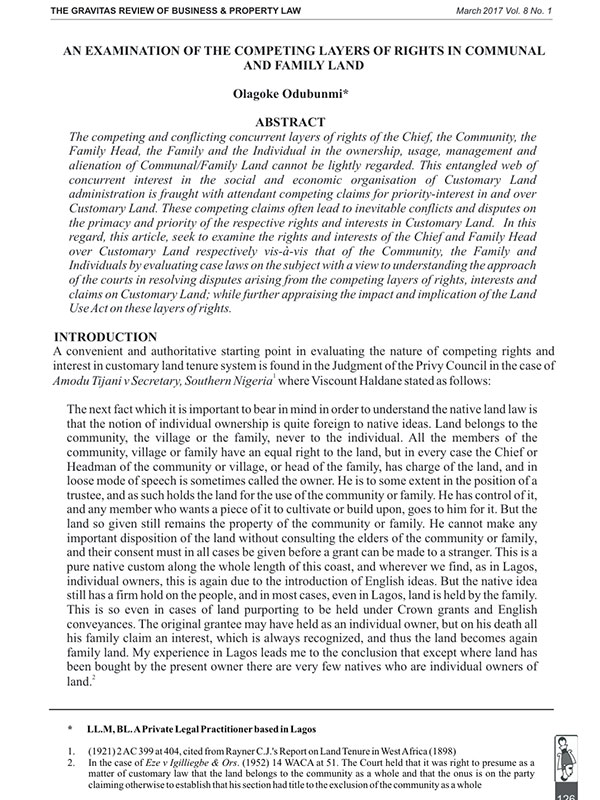
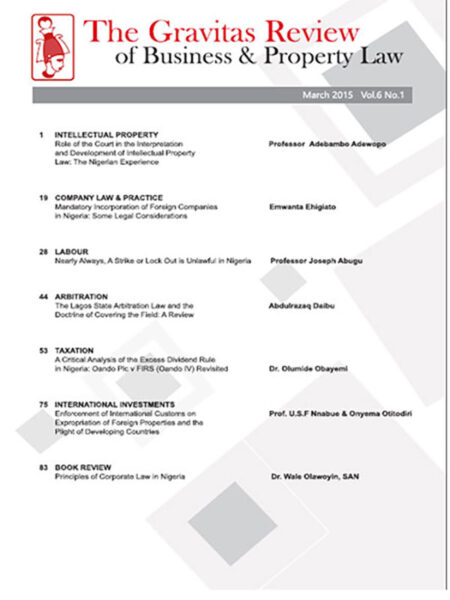
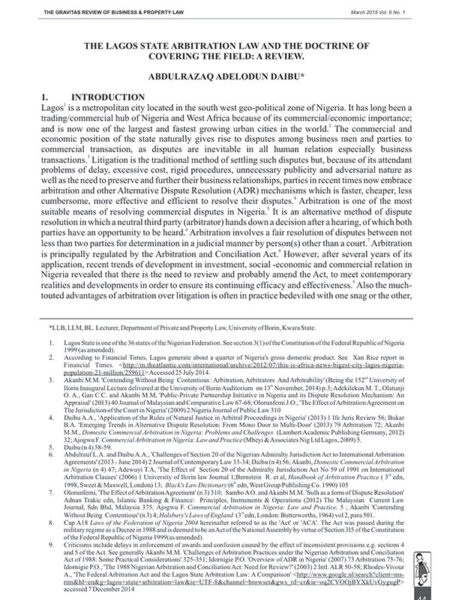
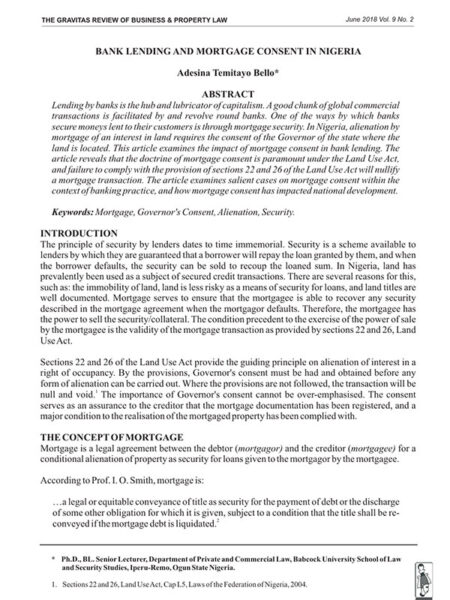
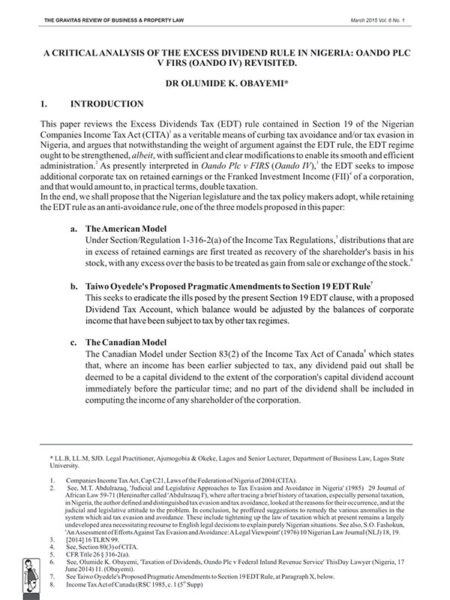


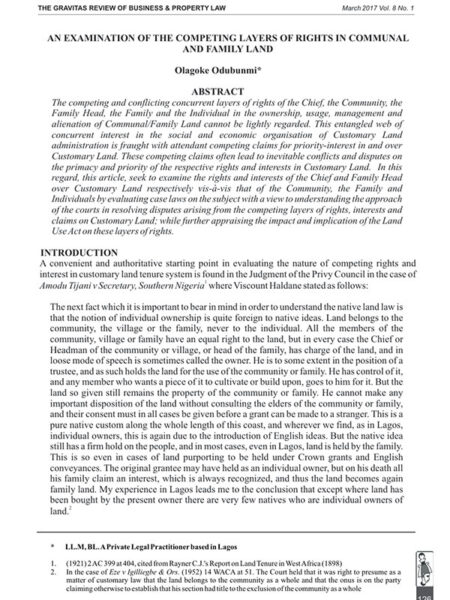
Reviews
There are no reviews yet.